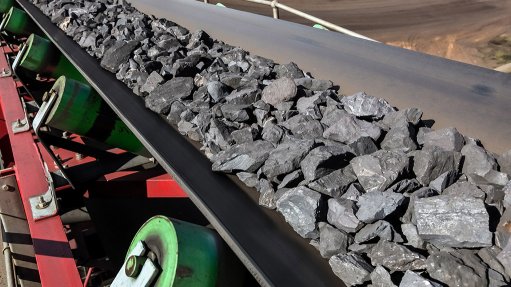
STAYING AHEAD
Despite having ‘world-class’ manganese ore deposits, South Africa still needs to be aware of international competition
Photo by: Sunshine Seeds
The South African mining industry needs to ensure that it remains competitive in its supply of manganese to the global market amid a global energy transition and an increasing emphasis being placed on procuring new metals and mineral combinations for the just energy transition and electric vehicle (EV) batteries, says specialist mining services provider Ukwazi business development director Spencer Eckstein.
Eckstein noted that manganese could be used to manufacture batteries for EVs, Mining Weekly reported in June 2022.
He says, however, that the industry is witnessing a “scramble to find an optimal combination” of green metals and minerals for batteries.
With the myriad of batteries being developed lately, different combinations of minerals can be used in batteries, depending on their specific application and the manufacturing process involved.
“Despite having ‘world-class’ manganese ore deposits, South Africa still needs to be aware of international competition which means being cost sensitive and innovative,” cautions Eckstein.
In this regard, he states that, to ensure competitiveness, the local sector needs to increase its manganese export capacity, which is being addressed by State-owned rail company Transnet Freight Rail (TFR), through the expansion of its manganese rail corridor.
TFR is extending the current Mamathwane crossing loop, in the Northern Cape; Eckstein says this expansion will assist in getting more product out of South Africa and into international markets.
Additionally, having manganese transported by rail also reduces health and safety risks regarding manganese dust becoming airborne when stockpiled or when being transported.
“Having a dedicated manganese terminal in Gqeberha is going to be a huge advantage for the industry,” he points out.
From a socioeconomic perspective, Eckstein says increasing the volume of manganese exports can provide employment opportunities on mines and in the transport/logistics corridors, while government will benefit from receiving higher royalties and other revenue from mining and export taxes.
However, he highlights that the outlook for the industry is being impacted on by price volatility and the rand:dollar exchange rate, with the manganese price being influenced by external factors such as demand from China and geopolitical tensions owing to Russia’s invasion of Ukraine.
Eckstein says research and development plays a crucial role in enabling better ways of finding, mining and processing manganese ore, as well as assessing and managing environmental, social and governance (ESG) issues.
As such, he notes that mining companies are focusing on ensuring operational efficiency and effectiveness while ensuring that their cost profiles, health and safety, and ESG compliance are of the “highest standard”.
With manganese being Ukwazi’s core commodity, the company has embarked on various projects in the sector pertaining to topics such as technical studies for optimisation and improved mine planning as well as ESG, permitting and closure planning.
“The outlook for the local manganese sector is strong and, if we can get the logistics and transport right, then export volumes will increase, which is favourable for the industry and the economy,” concludes Eckstein.